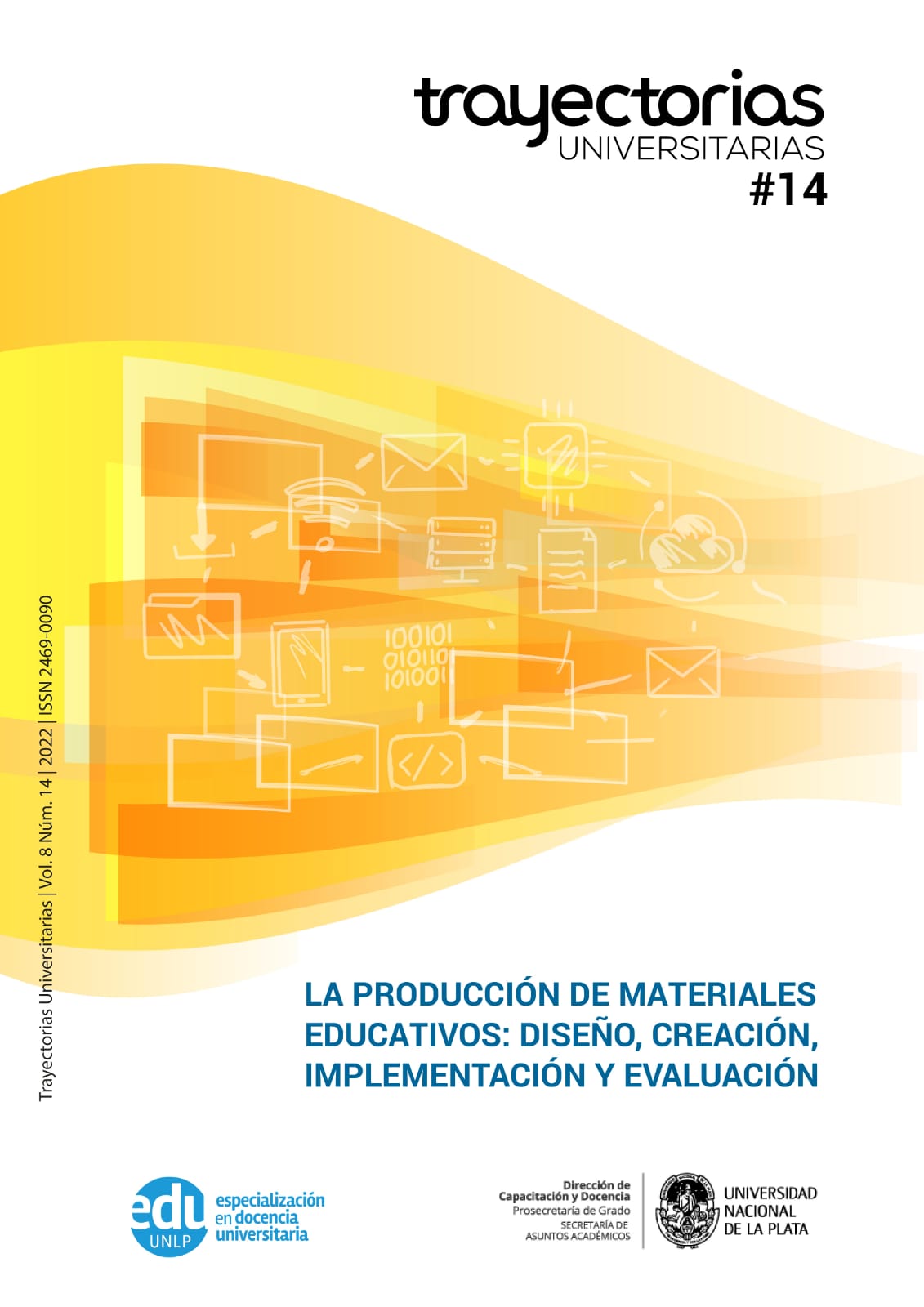Animal Assisted Education and Yoga in Primary Public School in pandemic stage due to covid-19
DOI:
https://doi.org/10.24215/24690090e091Keywords:
education, interventions, animals assited, yogaAbstract
This work refers to the articulation between the ongoing research project: "Assisted interventions with animals." and the University Extension project: "Recognize us, respect us, transform us", in order to make the reconnection to the school after the ASPO arranged by the authorities by the COVID-19 pandemic, in Primary No. 7 of La Plata, when the building conditions of the school prevented the return to the classrooms in person.
An activity is then proposed by an interdisciplinary group, which includes animal-assisted education interventions (IEAA), coordinated with activities of the teachers of the school, and yoga in the facilities of the Hippodrome of La Plata. The activities were developed from June 2021 to November 2021. Animal-assisted education EAA). It has academic objectives for humans and animals are part of the didactic sequence; in this framework, the framing of emotional security and motivation provided by the work of interventions to promote an area of learning is fundamental.
The results revealed a large percentage of attendance, participation in the activities, acquisition of hygienic sanitary behaviors and fundamentally the work was developed in a climate of harmonious coexistence.
Downloads
Metrics
References
Ferreira-Vorkapic C, Feitoza JM, Marchioro M, et al. Are there benefits from teaching yoga at schools? A systematic review of randomized control trials of yoga-based interventions. Evid Based Complement Alternat Med. 2015; 2015:345835.
Hagen I, Nayar US. Yoga for children and young people’s mental health and wellbeing: research review and reflections on the mental health potentials of yoga. Front Psychiatry. 2014; 5:35.·
Hendriks T, de Jong J, Cramer H. The effects of yoga on positive mental health among healthy adults: a systematic review and meta-analysis. J Altern Complement Med. 2017;23:505–517.
Downloads
Published
How to Cite
Issue
Section
License
Copyright (c) 2022 Karina Zubiri, Mariana Kienast, Silvana Escobar, Glenda Marcos

This work is licensed under a Creative Commons Attribution-NonCommercial-ShareAlike 4.0 International License.
La aceptación de un original por parte de la revista implica la cesión no exclusiva de los derechos patrimoniales de los/as autores/as en favor del editor, quien permite la reutilización, luego de su edición (postprint), bajo una Licencia Creative Commons Atribución-NoComercial-CompartirIgual 4.0 Internacional (CC BY-NC-SA 4.0).
Acorde a estos términos, el material se puede compartir (copiar y redistribuir en cualquier medio o formato) y adaptar (remezclar, transformar y crear a partir del material otra obra), siempre que a) se cite la autoría y la fuente original de su publicación (revista y URL de la obra), b) no se use para fines comerciales y c) se mantengan los mismos términos de la licencia.
La cesión de derechos no exclusivos implica que luego de su edición (postprint) en Trayectorias Universitarias los/as autores/as pueden publicar su trabajo en cualquier idioma, medio y formato; en tales casos, se solicita que se consigne que el material fue publicado originalmente en esta revista.
Tal cesión supone, también, la autorización de los/as autores/as para que el trabajo sea cosechado por SEDICI, el repositorio institucional de la Universidad Nacional de La Plata, y sea difundido en las bases de datos que el equipo editorial considere adecuadas para incrementar la visibilidad de la publicación y de sus autores/as.
Asimismo, la revista incentiva a los/as autores/as para que luego de su publicación en Trayectorias Universitarias depositen sus producciones en otros repositorios institucionales y temáticos, bajo el principio de que ofrecer a la sociedad la producción científica y académica sin restricciones contribuye a un mayor intercambio del conocimiento global.





















